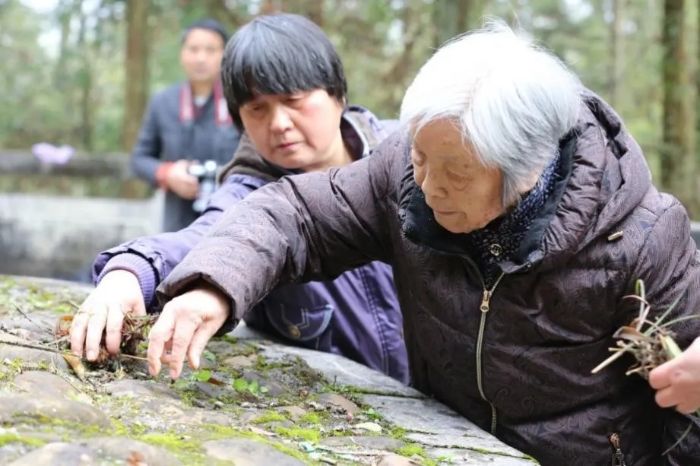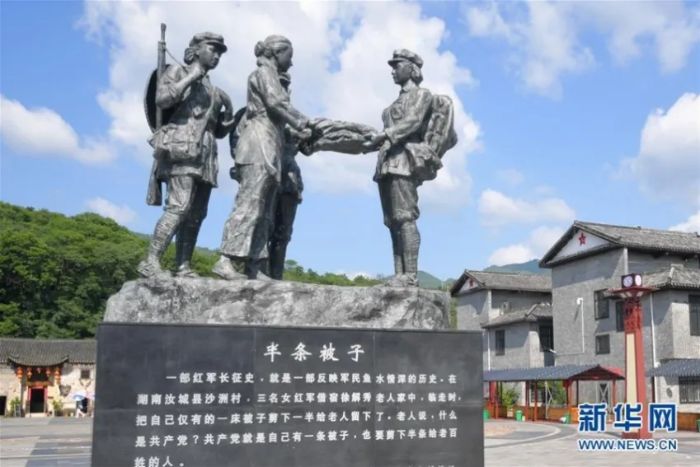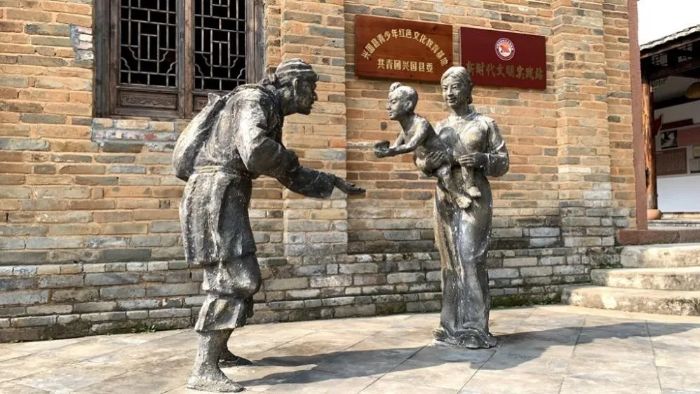Xi Shines Light on Iconic Figures and Key Events in Party’s History March 22,2021
The revolutionary history is the best textbook and nutrient for Chinese Communists. Since the 18th National Congress of the Communist Party of China (CPC), General Secretary of the CPC Central Committee has paid several visits to places bearing milestone significance in the Party’s history, including Jinggangshan, Yan’an and Xibaipo, and shared stories of Chinese Communists on multiple occasions. The following are some touching and inspiring stories shared by Xi’s book on CPC history, and let’s draw wisdom and strength from the Party history together.
![0701_145002_812.jpg }}_][)5@JN1W1OTTPE5(WYV.png](/ywb/GuidingSpirit/20210701/385224/781ce9103fc6b47c67eb06a801a631b3.jpg)
Stories about Jiao Yulu (1922-1964)
The stories about Jiao Yulu deeply rooted in our generation. For decades, Jiao’s story and his image has been in my mind. On February 7, 1966, the People’s Daily published a long profile of Jiao. At that time I was in the first year of junior high school. At a class, my ideological and political theory teacher read the profile to the students. The teacher choked with sobs several times. The classmates also shed tears, especially when reading the part in which Jiao insisted on working despite the liver cancer entering the advanced stage. Jiao would poke at his belly with the lid of a cup or a stick to relieve the agony, while his other hand pushed against the right armrest of his chair, which was gradually worn down with a hand-sized hole.
(Speech at the enlarged meeting of the Standing Committee of the CPC Lankao County Committee on March 18, 2014)

Caption: Gong Quanzhen visits the grave of General Gan Zuchang in Yuhu Mountain, Lianhua County, Jiangxi Province.
Stories of Gong Quanzhen
Now I’d like to introduce Gong Quanzhen, a national ethical model. She is the widow of General Gan Zuchang, a veteran Red Army officer from Jiangxi Province and a founding general of the People’s Republic. In 1957 Gan voluntarily resigned his post to be a farmer, and Gong Quanzhen returned with him to the countryside in Jiangxi. Half a century later, Gong still maintains the spirit of hard work and plain living. For this, she was elected a national ethical model, and is present at this meeting. I feel gratified and want to express my greatest respects to her. We must carry forward the spirit of hard work and plain living generation after generation.
(Speech when meeting the fourth group of nominees and winners of national ethical model awards on September 26, 2013)
![0701_145254_508.jpg QWX0PR]OB3V`@CIP@JS~8E5.png](/ywb/GuidingSpirit/20210701/385224/4e296435d199c1ca8e370a44b566e7f4.jpg)
Story of Half a Belt
When visiting a military museum, I was moved by the story of Half a Belt during the Long March. When there was nothing left but half of a belt, a soldier begged to keep it as a souvenir of the Long March and take it to Yan’an to see Chairman Mao, even if that meant they had to starve. This is the power of belief, as well as a vivid embodiment of following the Party’s lead.
(Speech made during an inspection of the 13th Group Army on January 5, 2016)

Story of Half-Quilt
When passing through Shazhou Village, Rucheng County, Hunan Province, three female Red Army soldiers sought shelter in the home of an elderly villager named Xu Jiexiu. Upon their departure, they cut their only quilt in two, leaving half with Xu Jiexiu. The elderly Xu said, “Who are the Communist Party members? The people who have only one quilt, but give half to the people. They are the Communist Party members.” Ultimately, the Long March succeeded because the CPC and Red Army stood together with the people, maintained a close bond with the people, and shared the same destiny as the people. This is also a fundamental guarantee that enables us to overcome all difficulties and dangers.
(Speech at a ceremony commemorating the 80th anniversary of the victory of the Long March. October 21, 2016)
![0701_145756_839.png _M%BF9W1ZYN]LM~{CAKWTT2.png](/ywb/GuidingSpirit/20210701/385224/ebf4e5e7ec9536a3093bf1c5a030d9a9.png)
Story of Supplies Department Head
When crossing the snowy mountains during the Long March, a Red Army soldier in thin clothes was frozen to death. The troop’s commander wanted to question the head of the supplies department and asked him why the soldier was not given cotton-padded clothes. But the other soldiers told the commander that the dead soldier was the supplies department head. The head in charge of supplies would rather freeze to death than put on warm clothes himself first. How lofty an ideological realm he has! Awareness may seem invisible, but it will display strong power at critical moments.
(A story shared by Xi Jinping at a seminar attended by senior Party officials and officials in January 2018)
Story of Lighting One Lamp Wick
During the period of former central Soviet areas, the Party officials “saved two liang of rice every day so that the Red Army fighting on the front lines could not be starved and win the battle.” We could hear people singing “The officials in the central Soviet areas have good work conduct; they bring solid food to work; they wear straw sandals to carry out revolution; at night they visited poor farmers living in mountains,” giving vivid expression to Chinese Communists’ fine conduct and tradition of bitter struggle. According to the regulations, three lamp wicks could be lit at night, but Comrade Mao Zedong took the lead to practice thrift and light only one lamp wick. He wrote Why Can China’s Political Power Exist? Struggle in Jinggangshan and other masterpieces under the dim oil light.
(Remarks made when Xi concluded his inspection tour in Jiangxi on May 22, 2019)

‘Beggar’ Carrying Bars of Gold
Following the Red Army’s failure in a battle, Liu Qiyao, the leader of the Communist authority in Jiangxi province, was entrusted with the activity funds of the local Party organization, including golden bars, packed up the hidden funds, and embarked on a journey to find them during which he once lived a beggar’s life. Even in his most desperate days, Liu did not use any of the funds for himself. We must carry forward Party’s fine conduct, and only in this way can we withstand the “four major tests” and “four major dangers”, correctly handle public-private relations, and oppose the “Four Forms of Decadence” (formalism, bureaucratism, hedonism, and extravagance).
(Remarks made when Xi concluded his inspection tour in Jiangxi on May 22, 2019)
Story of Yang Jingyu
During the War of Resistance Against Japanese Aggression, under extremely harsh conditions, Yang Jingyu led the anti-Japanese army with a force inferior in number to fight Japanese forces in the freezing cold of minus 40 degrees Celsius. After he died, the Japanese dissected his body, finding only undigested grass roots, cotton batting and tree bark left in his stomach, and not a single grain of rice. His story shocked many people.
(Remarks made during an inspection tour in Jilin Province on July 24, 2020)
Study and Understand Xi’s Important Expositions on Party History